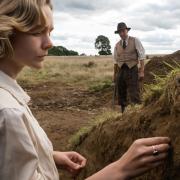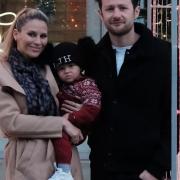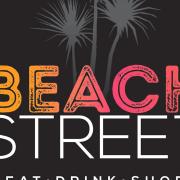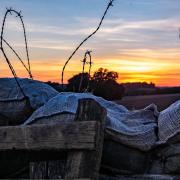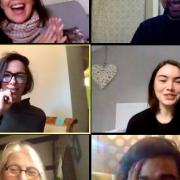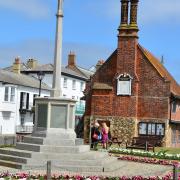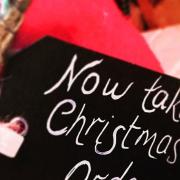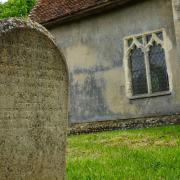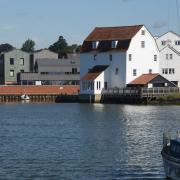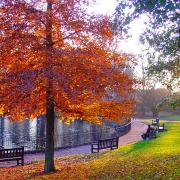Things that happened include the birth of one of our greatest painters, the death of one of our most loved radio presenters, a world record and a royal scandal

In October 1936, Wallis Simpson spent six weeks in Felixstowe while awaiting the divorce from Earnest Simpson that would free her to marry Edward VIII. She stayed at the five-bedroom Beach House which is no longer there but is marked by a plaque, put up by the Felixstowe Society. Wallis Simpson’s stay in the seaside town was part of a residence requirement while her divorce went through at Ipswich. The king would visit her, arriving in his plane and landing at Brackenbury Cliffs. It was the height of the abdication crisis as Edward gave up the throne in December that year.
On October 31, 1979, the New Wolsey Theatre in Ipswich was officially opened by Princess Alexandra. The 400-seat theatre was operated by The Wolsey Theatre Company, a regional repertory company, known for its productions of drama, comedy and musical plays. It fell into financial difficulties from the mid 1990s and was closed in 1999.
In 2001, the theatre reopened, owned and operated by the newly formed New Wolsey Theatre Company, a registered charity with a mission to present ‘high quality, diverse and accessible work’. The New Wolsey has established a strong reputation for the diversity of its audiences, for engaging with a broad cross-section of theatre-going and non-theatre-going communities, for nurturing and developing black and minority ethnic artists, and for its style of actor/musician productions. wolseytheatre.co.uk

On October 26, 1942, stage and screen actor Bob Hoskins was born in Bury St Edmunds. He was subsequently brought up in Finsbury Park, London. Labelled stupid because of his dyslexia, he left school at 15 with a single O-Level and worked as a porter, lorry driver, plumber, window cleaner, steeplejack and fire-eater before starting his acting career in 1968 at the Victoria Theatre in Stoke-on-Trent. Hoskins went on to achieve international stardom in the films Mona Lisa (1986) and Who Framed Roger Rabbit (1988).
Alfred Munnings, one of England’s finest painters of horses and an outspoken critic of Modernism, was born at Mendham in Suffolk on October 8, 1878. His father was a miller and Alfred grew up surrounded by the activity of a busy working mill with horses and horse-drawn carts arriving daily. After leaving Framlingham College, he was apprenticed to a Norwich printer where he designed and drew advertising posters and attended the Norwich School of Art in his spare time. When his apprenticeship ended, he became a full-time painter, even though he lost the sight in his right eye in an accident in 1898. In 1899 two of his pictures were shown at the Royal Academy Summer Exhibition.

Munnings painted rural scenes, subjects such as gypsies and horses, and was associated with the Newlyn School of painters, and while there met Florence Carter-Wood (1888–1914), a young horsewoman and painter. They married on January 19, 1912, but she tried to kill herself on their honeymoon and did so in 1914. Munnings bought Castle House, Dedham, in 1919, describing it as ‘the house of my dreams’. He used the house and adjoining studio extensively throughout the rest of his career, and it was opened as the Munnings Art Museum in the early 1960s, after his death. munningsmuseum.org.uk
What do you know about these 12 Suffolk coastal curiosities?

In October 2004, John Peel, radio presenter – Radio 1’s longest-serving DJ – he died aged 65. He lived in Suffolk for 33 years and is buried in St Andrew’s Church, in Great Finborough, where his gravestone bears the lyrics “teenage dreams so hard to beat”, from the DJ’s all-time favourite record. The Undertones’ Teenage Kicks. The former Corn Exchange building in the town centre of Stowmarket has been converted into the John Peel Centre for Creative Arts. johnpeelcentre.com
Felixstowe’s Dean Gould established a world record for catching beermats which was filmed and seen on TV’s Record Breakers on October 22, 2000.
The stack of 2,390 beermats, achieved with an interlocking system and no adhesive, was loaded on one elbow by Dean. Once balanced, the stack was then dropped and caught palm up, and held in one hand for at least five seconds without the other hand, arm or body touching or helping with the catch. Dexterous Dean has been breaking records over three decades and featured on TV show Outrageous Stunts demonstrating some of his unusual feats such as beermat flipping, coin snatching, and holding eggs in the back of his hand. On October 4 2013, he set a record for beermat speed flipping Royal British Legion, Felixstowe, fipping 1,000 beermats in just 28.02 seconds.






